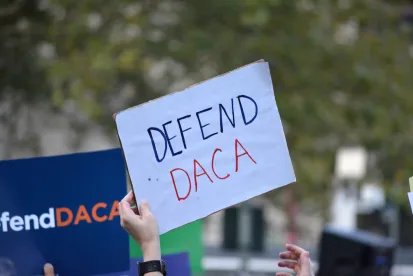Illinois has amended the Illinois Human Rights Act to make “work authorization status” a protected category.
The amendment, Public Act 102-0233, became effective immediately upon the governor’s signing in early-August.
Under the amendment, “work authorization status” is defined as the status of a person born outside of the United States, and not a U.S. citizen, who is authorized by the federal government to work in the United States. See Public Act 102-0233. While this anti-discrimination amendment seems to align with federal law, the definition of protected individuals is much broader.
Federal immigration law prohibits citizenship discrimination and protects U.S. citizens, U.S. nationals, asylees, refugees, and recent lawful permanent residents. The Illinois Human Rights Act also prohibits citizenship discrimination. Federal and Illinois discrimination laws prohibit discrimination based on national origin. The amendment to the Illinois Human Rights Act adds a new category and makes it a violation, among other things, for any employer “to refuse to honor work authorization based upon the specific status or term of status that accompanies the authorization to work.” This law protects any individual with Employment Authorization Documents (EADs), including DACA (Deferred Action for Childhood Arrivals), TPS (Temporary Protected Status), and DED (Deferred Enforced Departure) beneficiaries, as well as non-immigrants, such as H-4 and L-2 spouses.
Although the amendment states that nothing in the Illinois Human Rights Act “shall require an employer to sponsor, either monetarily or otherwise, any applicant or employee to obtain or modify work authorization status,” it does prevent an employer from making employment decisions based on EAD expiration dates or a particular work authorization status (like DACA, H4 EADs, or TPS). DACA beneficiaries or Dreamers have already brought lawsuits alleging that such actions violate Section 1981 of the federal Civil Rights Act and the Illinois amendment may have been a reaction to those cases.
Illinois employers may need to modify their hiring and I-9 practices to ensure they do not violate the amended Illinois Human Rights Act.




 />i
/>i
